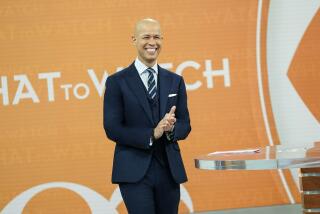‘Journalist,’ ‘Anchor’ Almost Unrelated
- Share via
I was a part of a group of journalists who were proud of our journalistic standards, the White House correspondents in Harry Truman’s administration. We came in just ahead of used car salesmen in the polls of those days.
Anzur’s concern is very well-founded, but not on the basis she has chosen. She was confusing two almost unrelated terms: “journalist” and “anchor person.”
Although it is true that a real journalist has, occasionally, worked as an anchor person, many of the top anchor persons in my experience have not been serious journalists. After the scandal of the network quiz shows, way back when, there was a period of time when the networks put a lot of us on the air in the hope that our very lack of show-biz qualities would underscore our status as journalists and restore faith in the networks. That concept ended years ago.
The truth is that an anchor person doesn’t need to be a journalist. As long as journalists are doing the reporting and controlling the program, the show-biz types are just fine. In fact, if they’re good, they’ll draw listeners and viewers to the work of the journalists.
Take the classic example of the moment: Charles Osgood, reads--even writes--his own radio commercials. But he’s an engaging personality, and one can only hope that some qualified journalist is in the background, keeping him honest.
And that is where you might look for the really serious problem. What are the qualifications of the news producers, the people who tell the anchors what to do and say and all too often try to tell the legitimate reporters what to do and say?
The Susan Molinari case is just another one of those things. If we want to be concerned, let’s be concerned about the true nature of the position of anchor person and the producers behind the scenes.
FRANK BOURGHOLTZER
Santa Monica


